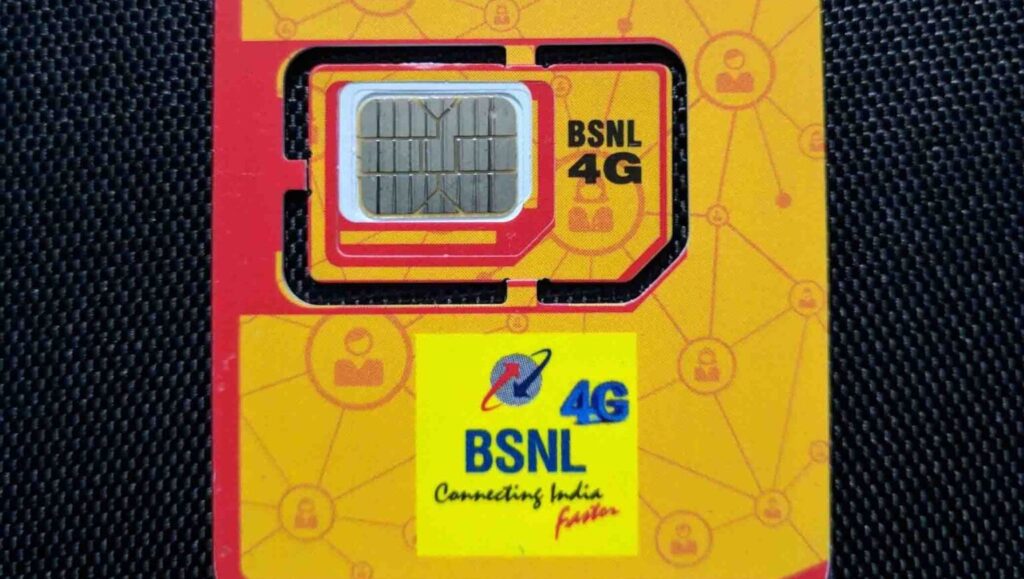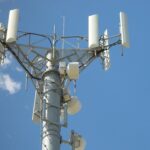State-owned telecom operator BSNL has long since been demanding 4G spectrum to be able to compete in the market which is dominated by private operators. BSNL held only one 20 MHz block across 14 circles in the 2500 MHz band which was feasible for 4G services since the only other alternative liberalised spectrum it held was one 5 MHz block Pan India in the 2100 MHz band which it is currently using for 3G services and the operator would have to shut down 3G if it wanted to use that spectrum for 4G.
It has now become clear after the release of the NIA that the DoT has allotted fresh liberalised spectrum to BSNL for launching its 4G services Pan India. The state-owned telco has been allotted an additional block of 5 MHz in the 2100 MHz band in 20 telecom circles (including Mumbai but excluding Delhi and Rajasthan) it has been allotted a 5 MHz block in the 850 MHz band in Rajasthan and a 10 MHz block in the 1800 MHz band in Delhi circle with a 20 years validity up to 2040.
| Circle | 2100 MHz | 1800 MHz | 850 MHz |
|---|---|---|---|
| Delhi | – | 10 | – |
| Mumbai | 5 | – | – |
| Kolkata | 5 | – | – |
| AP | 5 | – | – |
| Gujarat | 5 | – | – |
| Karnataka | 5 | – | – |
| Maharashtra | 5 | – | – |
| Tamil Nadu | 5 | – | – |
| Haryana | 5 | – | – |
| Kerala | 5 | – | – |
| MP | 5 | – | – |
| Punjab | 5 | – | – |
| Rajasthan | – | – | 5 |
| UP East | 5 | – | – |
| UP West | 5 | – | – |
| West Bengal | 5 | – | – |
| Assam | 5 | – | – |
| Bihar | 5 | – | – |
| HP | 5 | – | – |
| J&K | 5 | – | – |
| North East | 5 | – | – |
| Odisha | 5 | – | – |
For the uninformed, the PSU’s administratively allotted spectrum expired along with its UASL license in February last year but the DoT asked the operator to continue offering 2G services uninterruptedly. Subsequently, last month DoT renewed BSNL’s license to UL and converted the existing spectrum holdings to liberalised with 20-year validity effective from 29th February 2020. But the existing 900 MHz and 1800 MHz spectrum are being used by the operator for 2G services which need to be continued for the sake of the large 2G subscriber base.








Hi… Finally it’s happy to hear tat BSNL gets oxygen ( 4G spectrum allocation) …
Sry actually bcz my query or complaints whatever it’s not related to ur article above..but I want to share n ask question abt BSNL FTH service…
I’m from Visakhapatnam,tagarapuvalasa… In my area bcz of non availability of reputable company broadband services and I’m being a customer of BSNL prepaid since 12 yrs I’m decided to take BSNL FTH service ..I registered tru online n got registered number 2 mnths back…I did it couple of times…but I didn’t get any cal from BSNL for verification/confirmation..
Finally one dy I went to near by BSNL Office near to me ( BHEEMILI area) … What they said was now they given contract to someone for area I’m staying n they given me his number… I tried to cal him repeatedly but he didn’t not answer….
So my question is why BSNL giving contract for installation of broadband to local people ..?? In this tough times they facing why can’t those employees trying to impress ppl by giving/showing their interest in giving good services ??
Giving contract to someone is under who’s authority local office or district manager or zonal manager ??
BSNL telling installation is free of cost but contractor wil ask fee..?
As long as such type of (some lazy) employees working it is better to privatise it in some aspects .. what is ur opinion on privatise it ?
Well that is true for any public sector company, which is why people are so crazy about government jobs coz they know there will be lifetime job security irrespective of poor performance. Private companies pay incentive as per performance so the executives ensure best service quality. VSNL was sold to Tata group, Air India is being bought by Tata again, so I wouldn’t be surprised if the government considers privatization of BSNL also if it continues to lose revenue and subscriber market share.
Tnq yar … yeah govt should do it as soon as possible in the intrest of not let wasting people’s money esp taxpayers money..( for giving revival plans repeatedly)
Esmail, have lots of queries. Will be grateful if you take out some of your valuable time to respond. Thanks a ton in advance.
1 – What happened to the 20mhz in 2500 band that BSNL has in 14 circles? Are BSNL using it for 4G or they lying unutilized?
2 – Has BSNL not received or alloted 20mhz in 2500 band (like current 5mhz in 2100 band) for the remaining circles?
3 – Has 5mhz in 700 band been reserved for or alloted to BSNL, as in auction only 30mhz of 700 band is available, instead of 35mhz earlier?
4- 700 band & 800 band have almost similar propogation and are both FDD. Then why is 700 band almost 25-30% more expensive than 800 band,?
5 – Can BSNL get spectrum in 2100 band in exchange for its 2500 band (with another operator), across India?
6 – Similarly, can BSNL exchange its spectrum in 1800 band and get spectrum in 900 band (from another operator), across India?
1) Mostly lying unutilised because its BSNL after all, they will ask for more without using what they already have.
2) No it has not been allotted any fresh 2500 MHz spectrum in the remaining 8 circles.
3) No it has been allotted to the Indian Railways for non-commercial signalling uses.
4) Similar but not the same, 700 MHz still travels further and penetrates physical barriers better than 850 MHz and thus can provide better indoor coverage and is also better suited for rural areas with lesser towers. 850 MHz has half the quantity of spectrum available as compared to 700 MHz so if an operator wants a good 20 MHz chunk of contiguous spectrum for 4G or 5G in the sub-GHz region then it is possible only in 700 MHz band.
5) No I’m afraid there is neither such feasibility nor would a private operator be willing for such a swap, why give more efficient spectrum in exchange for less efficient one?
6) Answer same as question number 5.
perfectly answered !!!!!!!!! 🙂